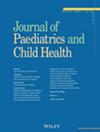Developing a Transition Tool for Young Adults With Neurodevelopmental Conditions
Abstract
Background
Transition from paediatric to adult healthcare is a challenging time for young adults with neurodevelopmental conditions (NDC). The fragmentation and deficits in health, social and disability systems, and the increasing numbers of people with NDC, mean a more guided transition focusing on health independence is needed. This study aimed to develop a holistic transition tool and identify areas for improvement in transition services based on the consensus of experts involved with the care of children with NDC in Aotearoa, New Zealand.
Methods
Utilising the Delphi method, two rounds (Round One: open-ended, Round Two: Likert scale) of online questionnaires involving 61 panellists (healthcare professionals, educators and caregivers) reviewed areas for improvement in transition services and ideas for a transition tool.
Results
In Round One, Delphi participants identified seven themes related to transition services, including processes, resources, professionals, governance and culture; and 10 themes related to components of the tool, including communication, healthcare management, rights, activities, supports and community connectedness, whānau/family, culture, mental and spiritual health and sexual health. In Round Two, 94% of the ideas for transition services items reached consensus (26% with strong consensus [> 95%]). All the components of the transition tool reached consensus, and 62% of items reached strong consensus (> 95%).
Conclusion
This study provides direction on key domains related to transition services and a framework for a transition tool for young adults with NDC in Aotearoa, New Zealand. Its inclusion of domains related to culture, mental and spiritual health, rights for young adults, family involvement and community connectedness is a first step in developing a holistic approach to support a successful transition.


 求助内容:
求助内容: 应助结果提醒方式:
应助结果提醒方式:


